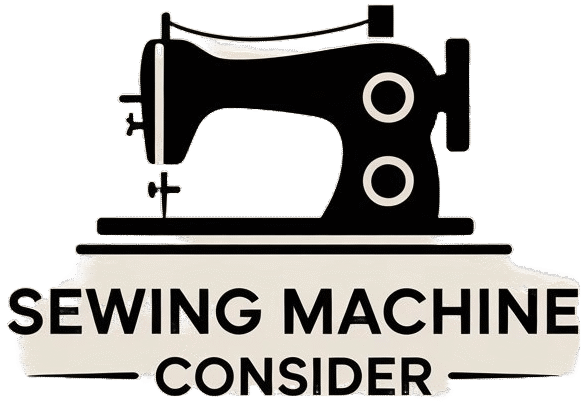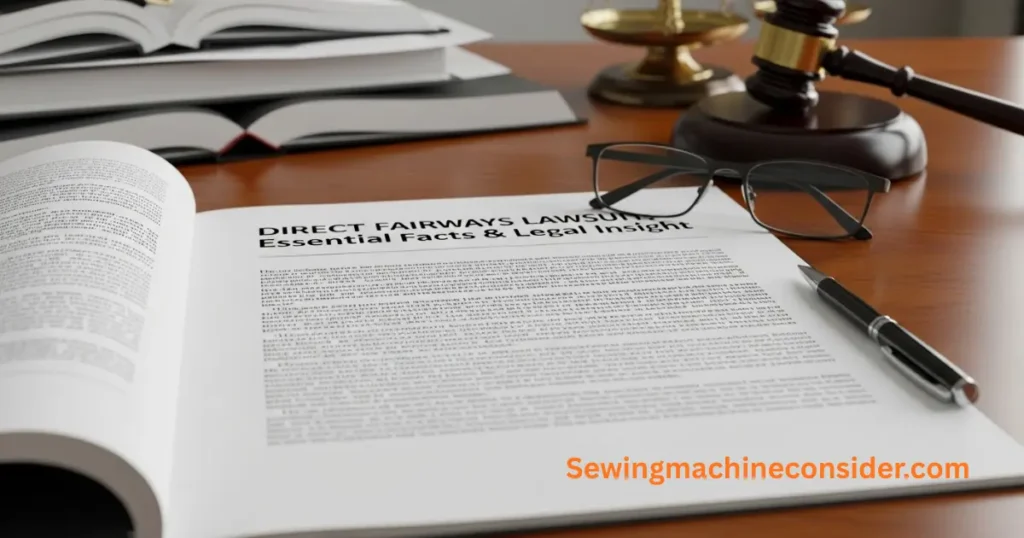The Direct Fairways lawsuit has drawn widespread attention for revealing the potential pitfalls of niche marketing partnerships. Clients accuse Direct Fairways LLC, an advertising company that sells promotional space on golf-course materials, of misleading them, overcharging them, and failing to deliver the promised services. The ongoing legal disputes have made small-business owners more aware of how crucial it is to verify marketing vendors and scrutinize advertising contracts before signing.
The controversy centers on allegations that Direct Fairways used aggressive sales tactics and vague agreements to lure small businesses into paying for advertising campaigns that never produced the expected exposure. Some businesses claim that the company billed them multiple times or charged them even after they canceled, while others say the company never displayed their ads at the promised golf courses.
Understanding the full picture of the Direct Fairways lawsuit requires looking at how the company’s business model operates, what the main allegations are, and how these cases may reshape accountability in the marketing industry.
What are Direct Fairways, and how do they operate?
Direct Fairways markets itself as a bridge between local businesses and golf-course audiences. The company offers to place advertisements on scorecards, yardage books, tee signs, and similar materials distributed at golf clubs. The concept appeals to small businesses that want to reach a specific, high-income audience without spending on mass advertising.
In theory, the model benefits everyone involved: golf courses receive free materials, businesses get exposure, and Direct Fairways profits from selling ad space. However, in practice, many advertisers claim they never saw their ads printed or distributed.
Some clients report that sales representatives pressured them to make immediate payments over the phone or through online invoices, often promising “limited availability.” Others discovered that the company applied recurring charges without their consent.
Although not all clients share negative experiences, the growing number and consistency of complaints have drawn increased legal scrutiny, ultimately culminating in what people now refer to as the Direct Fairways lawsuit.
Key Allegations in the Direct Fairways Lawsuit
Misrepresentation of Services
Many advertisers allege that the company made exaggerated or false claims about how their ads would be displayed. Some were told their advertisements would reach a large audience or appear in premium placements, yet later found no evidence that the materials were ever distributed.
Unauthorized and Recurring Charges
Several business owners claim they were billed repeatedly after paying an initial one-time fee. Some assert that their contracts did not authorize such charges or that they never signed documentation agreeing to continued payments. These allegations suggest possible violations of fair billing and consumer-protection standards.
Failure to Deliver Promised Advertising
According to multiple complaints, the company either never printed the ads, printed them incorrectly, or failed to deliver them to golf courses. Some clients said they personally visited the venues where the company was supposed to display their ads, but found no sign of them.
Vague and Unclear Contracts
Critics argue that Direct Fairways’ contracts included ambiguous terms, making it difficult for clients to understand refund policies, campaign duration, or cancellation procedures. Many also claim they were rushed to sign agreements without time to review the fine print.
Aggressive Sales Tactics
Former customers describe high-pressure phone calls where salespeople urged immediate decisions. These tactics reportedly created a false sense of urgency and limited the clients’ ability to assess the offer carefully.
Legal Developments and Current Status
The legal disputes involving Direct Fairways are complex, encompassing both consumer complaints and business-to-business contract issues. The Direct Fairways lawsuit involves not just one case but a series of legal claims and ongoing investigations.
Several businesses have filed lawsuits seeking refunds or compensation for advertising services they allege the company never delivered. Others involve claims of breach of contract or deceptive trade practices. There have also been reports of former employees filing claims related to labor misclassification or unpaid commissions.
While the company maintains that it operates legally and has satisfied many clients, public records and consumer-protection reports show a consistent pattern of grievances. As of now, the parties have privately settled certain cases, while courts continue to review others. The lawsuit’s outcome could ultimately shape how regulators oversee marketing companies in the future.
Company Response to the Allegations
Direct Fairways has publicly denied engaging in deceptive or unethical practices. The company insists that it fulfills its advertising commitments and provides legitimate marketing opportunities for local businesses. Representatives have stated that some complaints result from misunderstandings, contractual misinterpretations, or customers not reviewing terms before signing.
On its website and promotional materials, the company highlights positive testimonials from satisfied clients. It also emphasizes that it operates under legally binding agreements and that all charges are authorized. However, critics argue that these responses fail to address the volume and consistency of complaints found across consumer-review platforms.
Despite these disputes, Direct Fairways continues to operate nationwide, offering golf-course advertising packages to small businesses.
Why the Direct Fairways Lawsuit Matters
The Direct Fairways lawsuit highlights an important reality: not all marketing opportunities are as straightforward as they seem. Small businesses, often eager for affordable advertising, can become vulnerable to unclear contracts and aggressive sales practices.
This case serves as a broader warning about transparency in marketing. Businesses must be able to verify that services promised are delivered, that payment terms are clear, and that cancellation options exist. It also underscores the growing importance of consumer-protection laws that regulate how service providers communicate with clients.
From an industry perspective, the lawsuit reminds marketing firms that trust and accountability are crucial for long-term success. Transparency, documentation, and measurable deliverables are essential for maintaining credibility.
Lessons for Businesses and Advertisers
Small-business owners can take several lessons from the Direct Fairways lawsuit to protect themselves when engaging with marketing vendors:
-
Research the Company – Before signing, check independent reviews, business ratings, and past legal or regulatory actions.
-
Request Written Proof – Ask for detailed documentation of where and when your ad will appear.
-
Read the Contract Carefully – Pay attention to cancellation terms, renewal clauses, and billing frequency.
-
Avoid High-Pressure Sales – Don’t agree to immediate payments without adequate review time.
-
Monitor Transactions – Check your bank or credit-card statements regularly for unauthorized charges.
-
Demand Transparency – Ask for post-campaign reports or photographic evidence showing your ad placement.
By following these practices, businesses can minimize risks and ensure that their marketing investments produce real, verifiable results.
Broader Industry Implications
The Direct Fairways lawsuit has raised questions about how marketing companies present their services, especially those targeting small businesses with limited experience in advertising contracts. The case may lead to stronger oversight and clearer standards in several areas:
-
Contract Transparency: Firms may be required to simplify agreements, using plain language that clients can easily understand.
-
Proof of Delivery: Advertisers might need to provide tangible proof—such as images or logs—that campaigns were executed.
-
Fair Billing Practices: Regulators could impose stricter rules regarding recurring charges and refund policies.
-
Sales Conduct: Aggressive or misleading sales approaches could face tighter restrictions to protect vulnerable clients.
Ultimately, the lawsuit could reshape best practices within the marketing sector, pushing companies toward greater accountability and ethical behavior.
What Happens Next in the Direct Fairways Lawsuit
The future of the Direct Fairways lawsuit remains uncertain. Potential outcomes include:
-
Private Settlements: Many companies prefer to resolve disputes quietly, compensating affected clients without admitting wrongdoing.
-
Court Judgments: A formal judgment could set a legal precedent for how similar advertising disputes are handled in the future.
-
Regulatory Action: Consumer-protection agencies may pursue further investigations if systemic violations are found.
-
Industry Reforms: Increased awareness could inspire new legislation or internal reforms within marketing organizations.
Regardless of the final outcome. The lawsuit has already had an impact by warning other businesses to stay cautious and informed when signing advertising agreements.
Conclusion
The Direct Fairways lawsuit stands as a cautionary example of how unclear marketing arrangements can escalate into widespread legal and reputational challenges. While the company maintains its legitimacy, the numerous allegations from small-business owners point to a pattern of communication breakdowns, billing confusion, and unmet expectations.
For advertisers, this serves as a reminder to prioritize transparency, read contracts thoroughly, and verify that services match the sales promises. For marketing companies, it highlights the necessity of maintaining honesty, clarity, and accountability in all client interactions.



